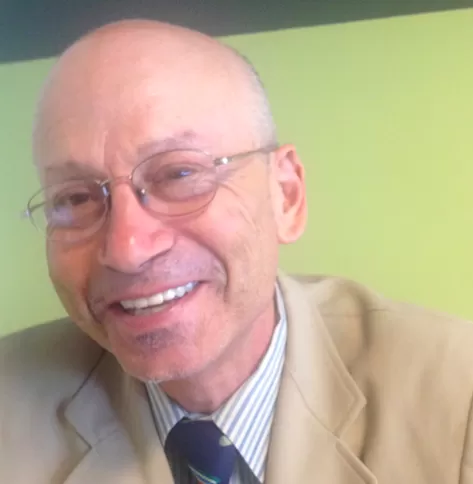Irvin Dawid discovered Planetizen when a classmate in an urban planning lab at San Jose State University shared it with him in 2003. When he left San Jose State that year, he took with him an interest in Planetizen, if not the master's degree in urban & regional planning.
As a long-time environmental activist, he formed the Sustainable Land Use committee for his local Sierra Club chapter and served six years on the Bay Area Air Quality Management District’s Advisory Council from 2002-2008. He maintains his interest in air quality by representing Sierra Club California on the Clean Air Dialogue, a working group of the Calif. Environmental Dialog representing business, regulatory and public health/environmental interests.
Major interests include transportation funding, e.g., gas taxes, vehicle miles traveled (VMT) fees, road tolls and energy subsidies that lead to unlevel playing fields for more sustainable choices.
He hails from Queens (Bayside) and Long Island (Great Neck); received an AAS in Fisheries & Wildlife Technology from SUNY Cobleskill and a B.S. from what is now Excelsior College.
After residing for three years on California’s North Coast, he’s lived on the San Francisco Peninsula since 1983, including 24 years in Palo Alto. Home is now near downtown Burlingame, a short bike-ride to the Caltrain station.
He’s been car-free since driving his 1972 Dodge Tradesman maxi-van, his means to exit Long Island in 1979, to the junkyard in 1988.
Major forms of transportation: A 1991 'citybike' and monthly Caltrain pass, zone 2-2. "It's no LIRR, but it may be the most bike friendly train in America."
Irvin can be reached at [email protected]
High-Speed Rail's Cap & Trade Gamble
While the revised business plan did shave off $30 billion, there remains a $55 billion funding shortfall. Dependent on federal and private funds that may never appear, could revenue from the sale of carbon credits bridge the funding gap?
Bay Area's Population Problem: More Out Than In
More people leave the 9-county region than migrate there from other states. In fact, the population would be in decline if it wasn't for foreign migration. Notably missing from the report on Census data is the birth rate for the region.
A Precipitous Price Drop for California's High-Speed Rail
Knowing that a $100 billion project stood a poor chance of passing muster in a budget-conscious state legislature, Gov. Jerry Brown shaved off $30 billion by using a "blended rail" strategy in the Bay Area and South Coast, i.e. sharing tracks.
Historic Agreement Reached To Fund Caltrain Electrification
An agreement has been reached to electrify Caltrain from San Jose to San Francisco, using early investment High-Speed Rail funds, but will Bay Area HSR opponents take notice?
U.S. Moves Toward Energy Independence
You'd never know it from the hype on rising gas prices, but the U.S. is moving toward that elusive goal of oil independence due to the convergence of two factors: falling oil consumption and increasing domestic production over the last half-decade.

























